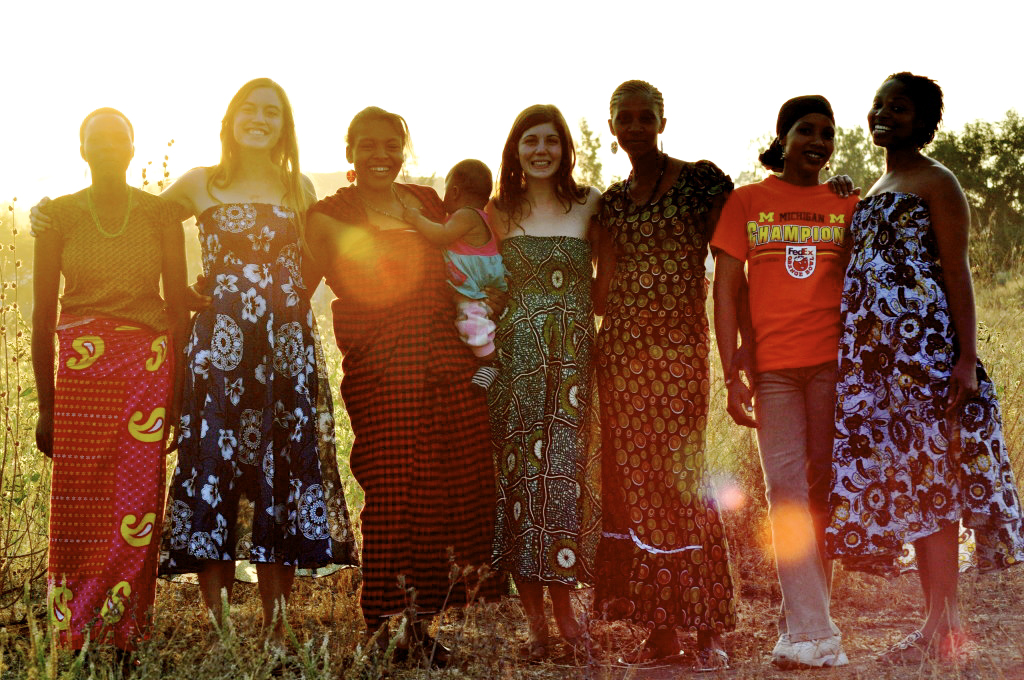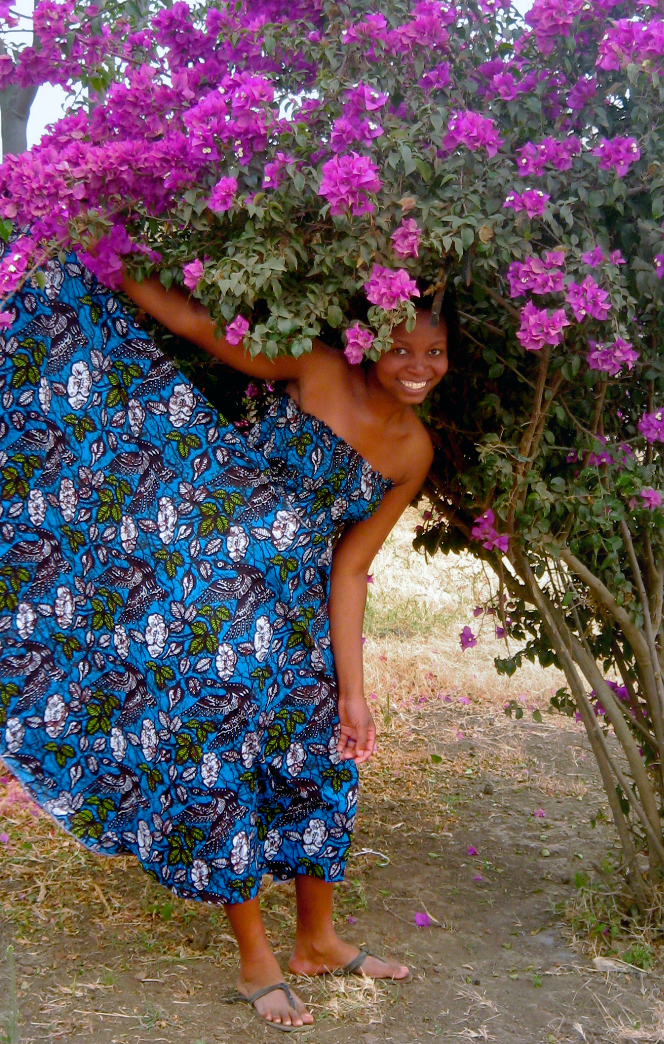
It began with a dress ““ fabric saturated in shades of violet and sewn into a simple strapless design.
But that was just enough to spark the idea behind Sewing Seeds, a nonprofit organization founded by third-year psychobiology student Lia Armstrong and third-year international development studies student Jessica Hoover.
Armstrong and Hoover conceived the idea after their involvement in a separate nonprofit group ““ UCLA’s One Heart Source. It was after spending a summer working on community outreach in the streets of Arusha, Tanzania that the two began to question something they repeatedly encountered: children out of school.
Many lived in single-income families unable to afford the price of school fees and uniforms, and were then left to receive limited schooling, if any.
“A lot of the times the husbands are employed, but that’s not enough to care for at least three kids. It would be wonderful if women had a chance to make an income and prevent that catch-22 cycle. That got me to thinking about employment opportunities for women,” Armstrong said.
Though they knew their goal was to improve the social environment in their adopted, second home of Arusha, Armstrong and Hoover were unsure of how to precisely put their plans into action. It was after they returned home from Tanzania that the idea arrived in the form of gifts from Armstrong’s sister, Emma, who had returned from studying abroad in Ghana. One gift ““ a strapless, dyed dress from Ghana ““ would blossom into something more.
“My sister brought me back a dress and a bunch of fabric, and we made a few dresses out of them. That got me to thinking the idea of “˜Wow, this could go somewhere.’ It’s been our main inspiration. If it weren’t for this dress I wouldn’t have thought of making clothes,” Armstrong said.
When Armstrong and Hoover returned to Tanzania this past summer, they came with a plan ““ to begin a tailoring school for women.
Working with translator Lilyan William, a woman they met through OHS, they were able to share their idea with local tailor “Mama” Dayness Karin Rafael.
“We explained our idea to her, that we wanted to come up with this tailoring school where women who are having trouble supporting their families could go and get trained so that they could learn the skill and eventually make the designs we give them. She loved our idea and right away said she’d do it, offered up her place so that we could train them there and that’s where they work now,” Armstrong said.
Using Armstrong’s dress as a template, Armstrong and Hoover spent the summer making the idea a reality.
Working with Rafael, they recruited a handful of women and by the summer’s end produced enough dresses to begin their nonprofit organization. In the months since, they have added two sewing machines to the tailoring shop, a bundle of patterned fabrics, and the foundation for employment and eventual microfinancing opportunities for women in Arusha.
“Jobs are really hard to find in Tanzania. A lot of women, especially in the villages aren’t educated enough to simply find a good job … which is why Sewing Seeds is intentionally creating a system of empowering these women and finding sponsorship for the children that their families can’t afford their school(ing) so that they get an opportunity to attend school,” William said in an e-mail, as she is currently in Tanzania.
“This itself is a big help for the community because I am sure women are so capable of making good changes if given a chance.”
Equipped with a seller’s permit and website ““ sewingseedsofchange.org ““ Hoover said they plan to begin selling Sewing Seeds’ products locally with all profits, after paying for supplies, going toward the women they train and their families.
“We can sell anywhere legally in the state of California, but we’re going to try to start at farmers’ markets and potentially on Bruin Walk sometime,” Hoover said.
All of the profit, besides what’s used to buy materials, goes to the women and the kids that we talked about and sponsorships. We don’t make money off of this, that’s the question we get so much.”
Sewing Seeds has grown to include not only several dress styles, but also patterned skirts, pants, aprons and bags made of traditional colored kitenge cloth and kanga, a fabric printed with Swahili proverbs.
“You’re taking this cloth that is really traditional and making it contemporary, and that’s why I think the Sewing Seeds clothes are so cool. If you go to Africa you don’t see a lot of clothes made in that style with that kind of fabric,” Emma Armstrong said.
Sewing Seeds currently operates on monthly shipments from Tanzania, where products are made in Rafael’s tailoring shop before being shipped by William, who manages logistics for Sewing Seeds from Tanzania.
“I never thought I’d be doing this at age 20. … We both never thought we’d be starting up a business, so it’s kind of like walking into it blind, but at the same time everything has just fallen into place in crazy ways. When I first had this idea it wasn’t anything like this and just watching the idea evolve over time has been pretty cool,” Armstrong said.
Armstrong and Hoover both intend to return to Tanzania this summer to further develop Sewing Seeds and work toward training more women in Arusha to sew.
“I feel most at home when I’m filled with purpose trying to help someone. For me, it’s all about working with the Tanzanians, that’s what it is about for me. That’s completely why I love it, and why I want to go back and continue doing this type of work,” Hoover said.
